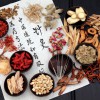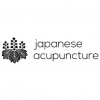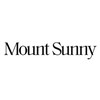Acupressure massage, especially when paired with our other techniques, will speed your recovery and make you feel great! Always remember that when we have pain and illness, it indicates that we are weak and out of balance. Five Elements of Chinese Preventive Measures (FECPM) is the rule of thumb to help us stay well throughout the five seasons and improve our healing process for both acute and chronic conditions.
The five elements are: Chinese Acupuncture, Chinese Herbal Medicine, Chinese Food (Diet and Nutrition) Therapy, Chinese Tuina, and Chinese Internal and External Exercises. These five elements simultaneously work to improve our mental and physical balance to preserve the quality of life, therefore preventing serious risks of medical and surgical procedures, and unnecessary and expensive medical costs.
The five elements are: Chinese Acupuncture, Chinese Herbal Medicine, Chinese Food (Diet and Nutrition) Therapy, Chinese Tuina, and Chinese Internal and External Exercises. These five elements simultaneously work to improve our mental and physical balance to preserve the quality of life, therefore preventing serious risks of medical and surgical procedures, and unnecessary and expensive medical costs.
Services
Integrated Acupuncture Medicine was founded by Y.M. Chen, Ph. D (OM). L.Ac and is family-owned and operated. Dr. Chen has practiced Traditional Chinese Medicine (TCM) for Psychosomatic Disorders, Neuromuscular and Musculoskeletal pain for 30 years. He has specialized in Chinese Periocular and Scalp Acupuncture for both internal and pain medicine.
We are proud to provide positive change in the lives of our patients. Traditional Chinese Medicine (TCM) has four major branches: acupuncture, herbal remedy, manipulative approaches, and food/exercise therapy. Chinese Zhenjiulogy refers to acupuncture and moxibustion. Acupuncture utilizes various needle sizes to stimulate designated superficial points of the body.
New data from a randomized, controlled trial found that acupuncture provided significant reductions in pain, dysfunction, and dry mouth in head and neck cancer patients after neck dissection. The study was led by David Pfister, MD, Chief of the Head and Neck Medical Oncology Service, and Barrie Cassileth, PhD, Chief of the Integrative Medicine Service, .
Reviews (1)
Valerie Puaha
Aug 25, 2018
Report



